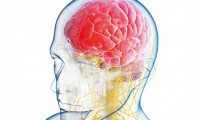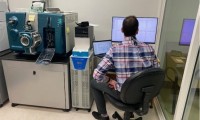-
Researchers develop brain-age prediction tool for diagnosis of neurological diseases
- Source: drugdu
- 456
- March 7, 2024
-
Womb condition checks could reduce cancer risk in endometrial hyperplasia
- Source: drugdu
- 356
- March 7, 2024
-
Highly Reliable Cell-Based Assay Enables Accurate Diagnosis of Endocrine Diseases
- Source: drugdu
- 396
- March 6, 2024
-
Groundbreaking Blood Test Offers Early Pancreatic Cancer Diagnosis
- Source: drugdu
- 577
- March 6, 2024
-
FDA Clears Quoin Pharmaceuticals to Employ Teens for Netherton Syndrome Clinical Trials
- Source: drugdu
- 254
- March 6, 2024
-
Longer Treatment Leads to More Liver Benefit
- Source: drugdu
- 332
- March 6, 2024
-
WHO issues guidance to improve access to hearing care in low- and middle-income settings
- Source: drugdu
- 319
- March 6, 2024
-
Henlius Adalimumab Biosimilar Received sNDA Acceptance Notification from the NMPA
- Source: drugdu
- 231
- March 6, 2024
your submission has already been received.
OK
Subscribe
Please enter a valid Email address!
Submit
The most relevant industry news & insight will be sent to you every two weeks.

















